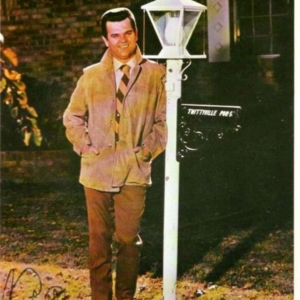
Conway Twitty: A Heartbroken Soul in “I Don’t Want to Be With Me”
Conway Twitty’s rendition of “I Don’t Want to Be With Me” is a poignant exploration of heartbreak and self-loathing, a theme that the country music legend often revisited with profound emotional depth. Released in 1970, the song became a chart-topping hit, solidifying Twitty’s status as one of the most beloved figures in country music.
Background
The song’s lyrics paint a bleak portrait of a man consumed by despair. The protagonist, driven to the brink by a failed relationship, expresses a deep-seated desire for self-annihilation. Twitty’s vocal performance is nothing short of heartbreaking, his voice filled with a raw vulnerability that mirrors the character’s emotional torment.
The musical arrangement is equally evocative, with a melancholic melody that underscores the lyrics’ somber tone. The pedal steel guitar, a staple of country music, adds a layer of mournful beauty to the composition. Twitty’s phrasing and the instrumental accompaniment create a sense of dramatic intensity, drawing listeners into the depths of the protagonist’s despair.
“I Don’t Want to Be With Me” is more than just a song; it is a cathartic experience that invites listeners to share in the singer’s emotional journey. Twitty’s interpretation of this powerful ballad remains a testament to his enduring legacy as one of the greatest vocalists in country music history.
Beyond its emotional impact, the song also offers a glimpse into the complexities of Twitty’s persona. While often portrayed as a jovial and charismatic figure, this song reveals a darker side to the country star, a man capable of experiencing the depths of human suffering.
In the grand tapestry of Conway Twitty’s discography, “I Don’t Want to Be With Me” stands as a poignant reminder of the artist’s ability to explore the complexities of the human condition. It is a song that continues to resonate with listeners, serving as a testament to the enduring power of music to touch the soul.